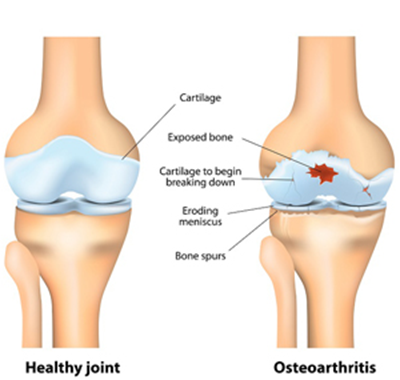What is the full form of DJDDJD: Degenerative Joint DiseaseDJD stands for Degenerative Joint Disease. It is also called osteoarthritis, a type of arthritis that causes inflammation, breakdown and eventual loss of the cartilage of the joints. It usually affects the joints of hands, knees, spine, and hips and develops as a person?s body wears down with age. 
It usually develops slowly in the beginning so it can be hard to diagnose this medical condition until it starts causing painful symptoms. So, if you are experiencing pain in your body or joints while performing your daily tasks, you should consult the doctor to determine if you are suffering from a degenerative joint disease. The doctor may perform certain tests to check if you are suffering from DJD or some other disease. An accurate diagnosis and proactively treating osteoarthritis help eliminate or alleviate devastating symptoms and development of severe secondary conditions. Without treatment, it usually gets worse over time and begins to affect other joints of the body. Causes:The primary cause of DJD is aging as a person gets older the risk of osteoarthritis increases. There are also some factors that can cause this condition, such as:
Symptoms:
TreatmentThe treatment of DJD gives emphasis on symptom management. So, its treatment is based on the severity of the symptoms and their location. Generally, lifestyle changes, over-the-counter medication, and home remedies can provide relief from pain, swelling and stiffness associated with this medical condition. 1) Life style changes:
2) Osteoarthritis medications:Some medications that may provide relief from pain or swelling in DJD include:
3) Some natural treatments:There are also some herbs and supplements that can help you manage symptoms such as:
4) Alternative treatments:
Prevention:
Next TopicFull Form
|
 For Videos Join Our Youtube Channel: Join Now
For Videos Join Our Youtube Channel: Join Now
Feedback
- Send your Feedback to [email protected]
Help Others, Please Share










